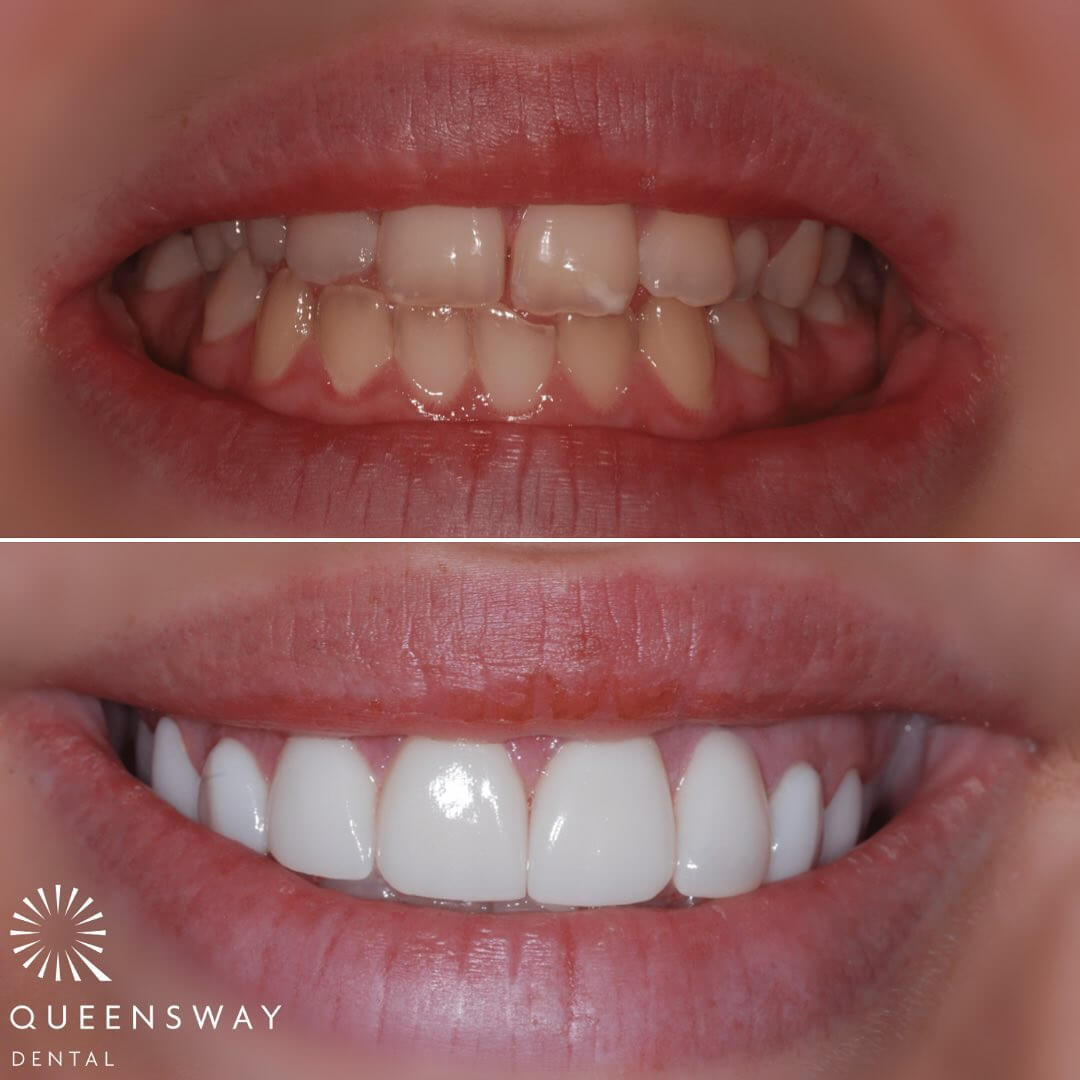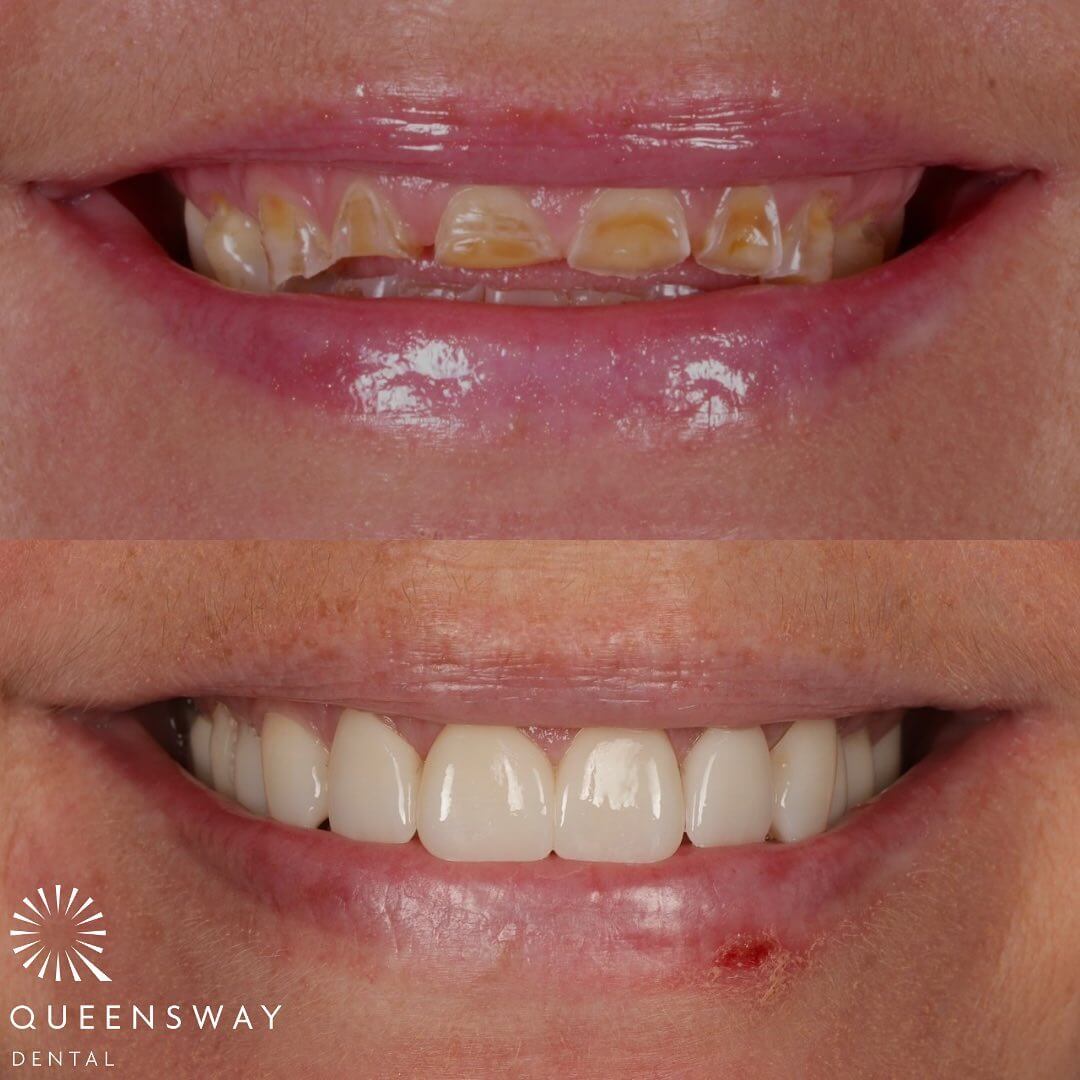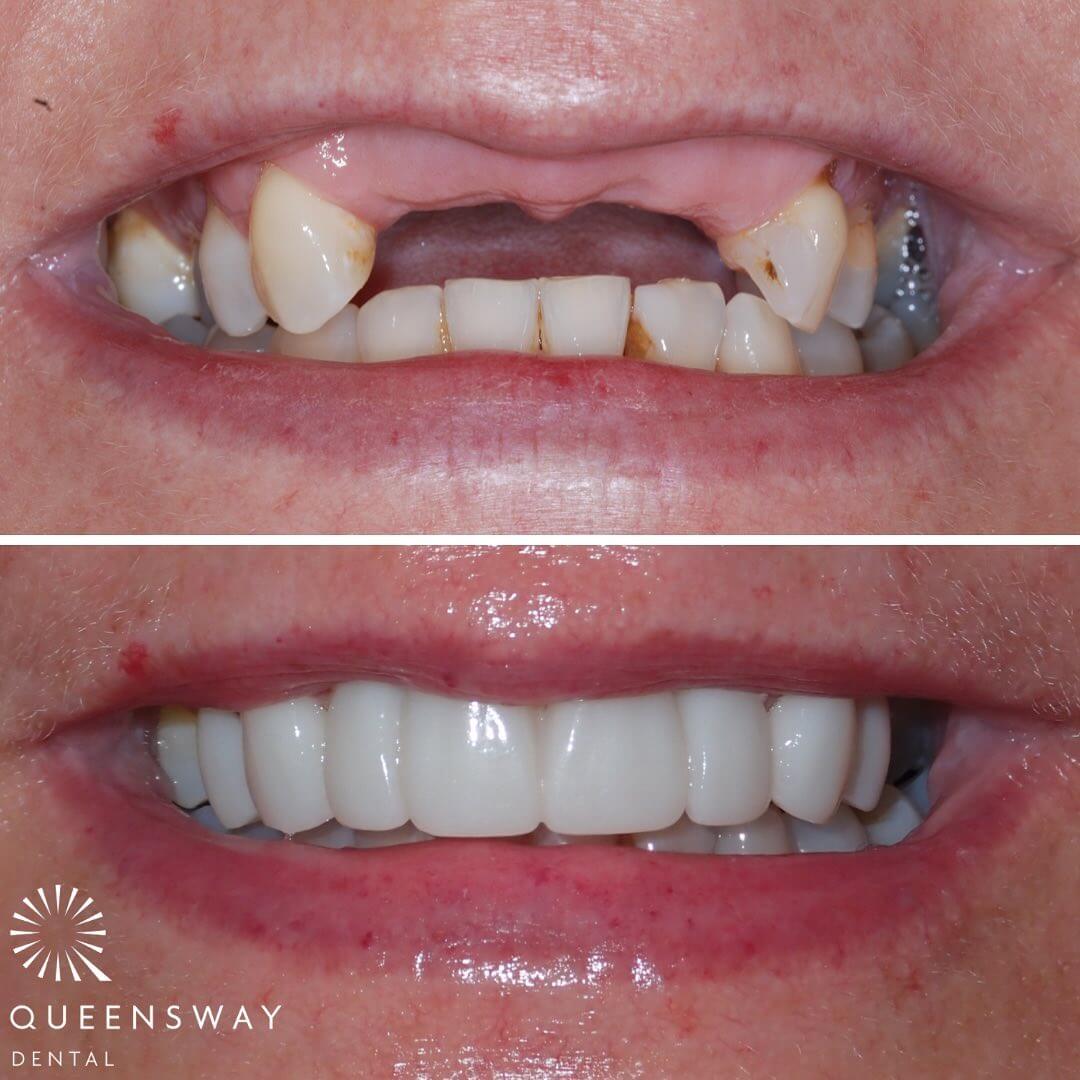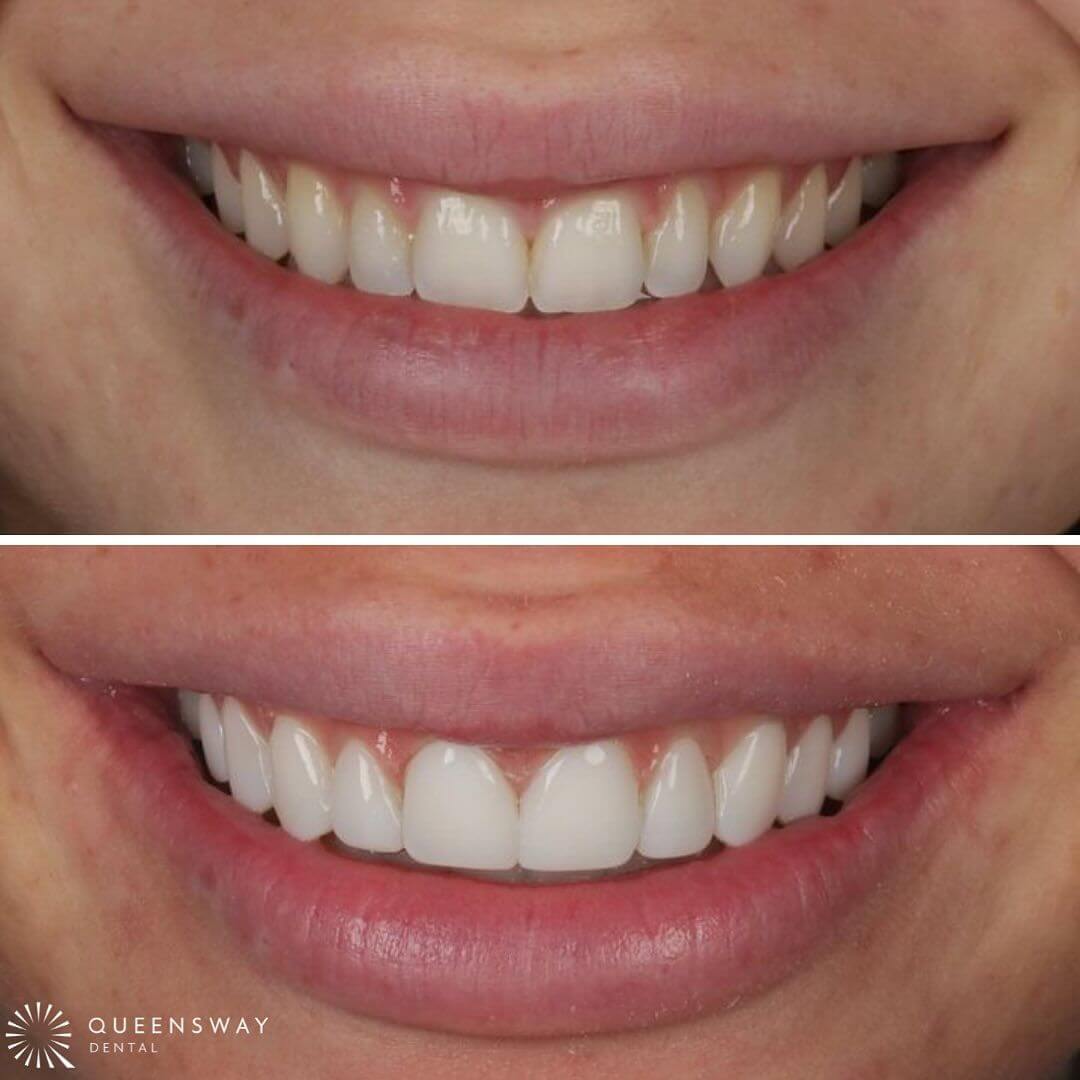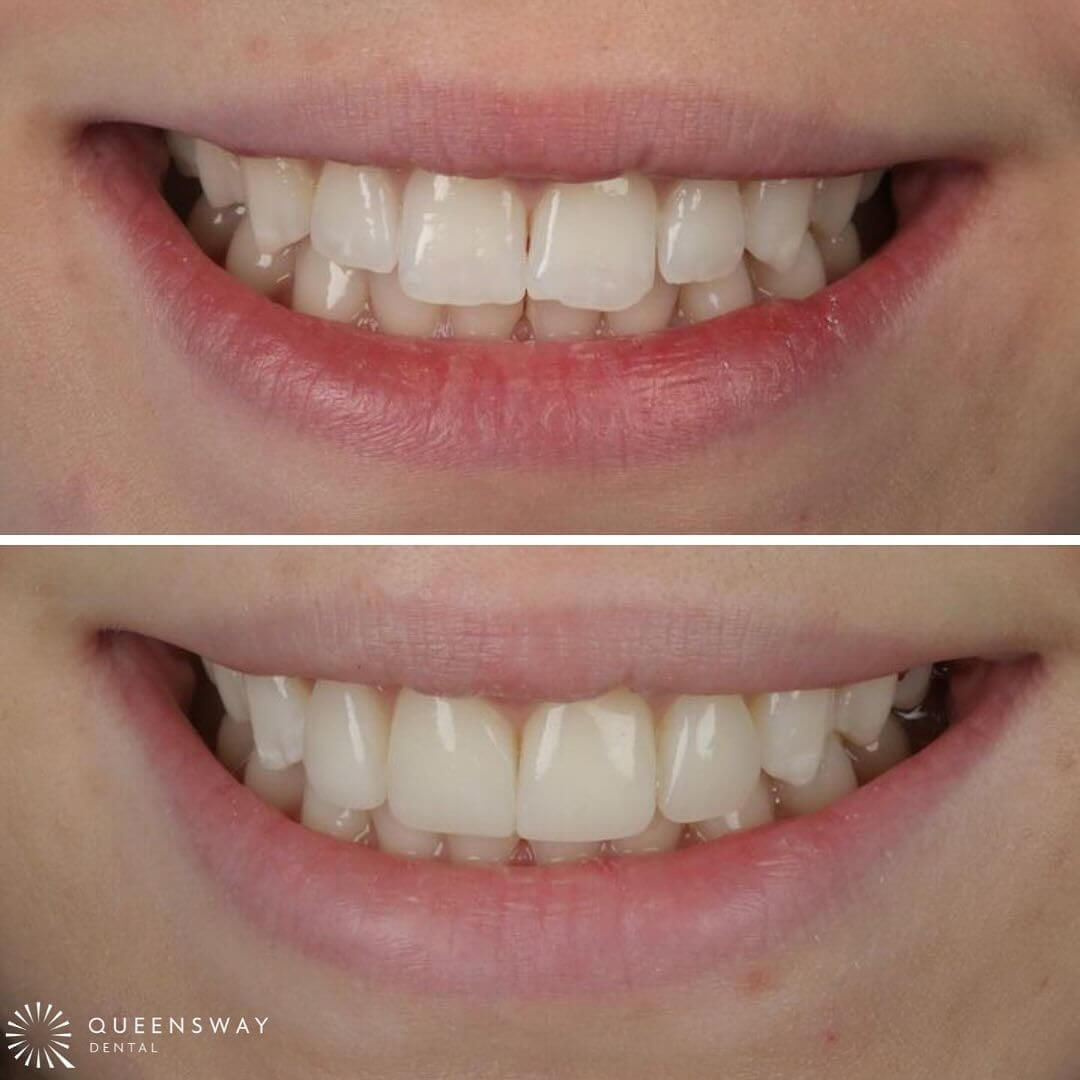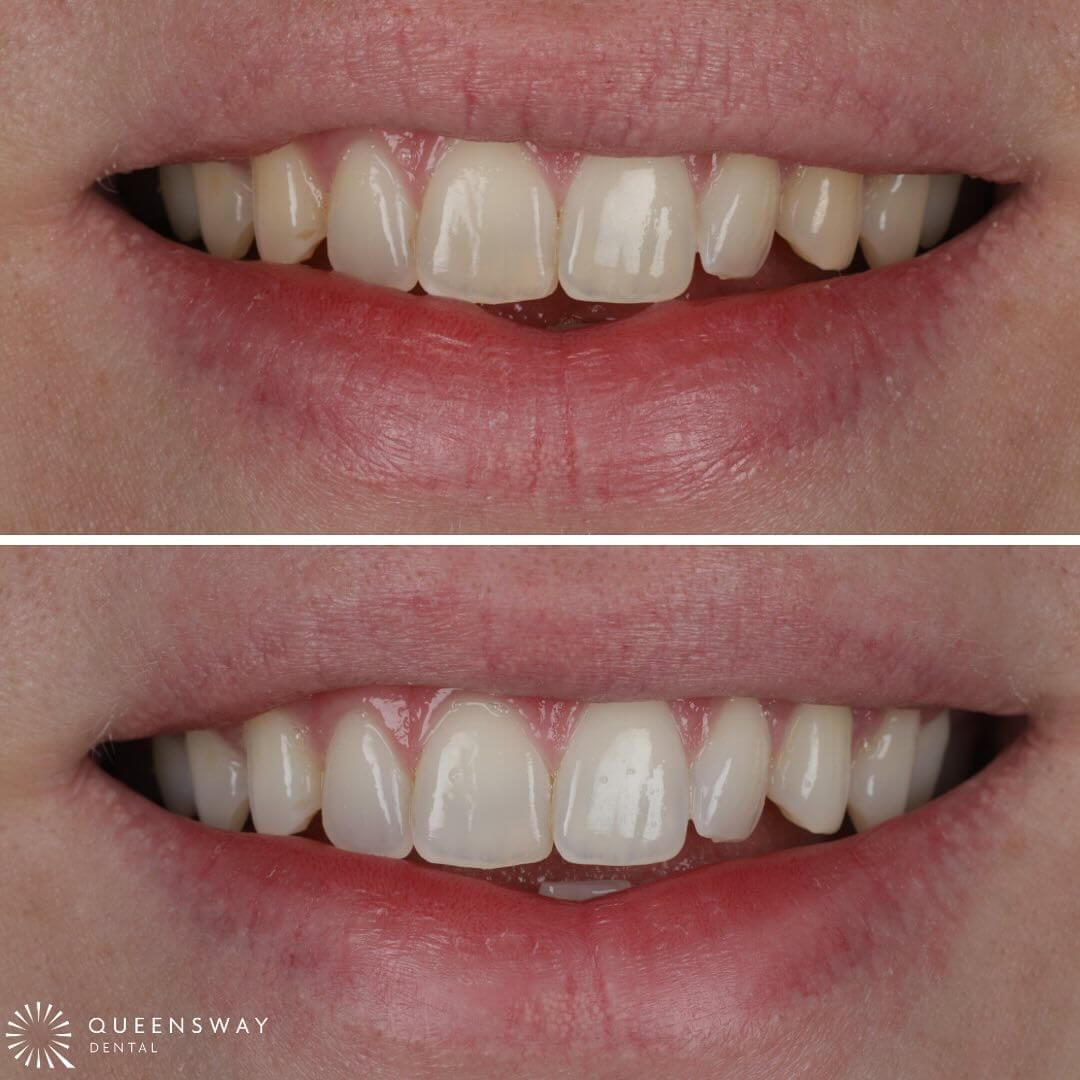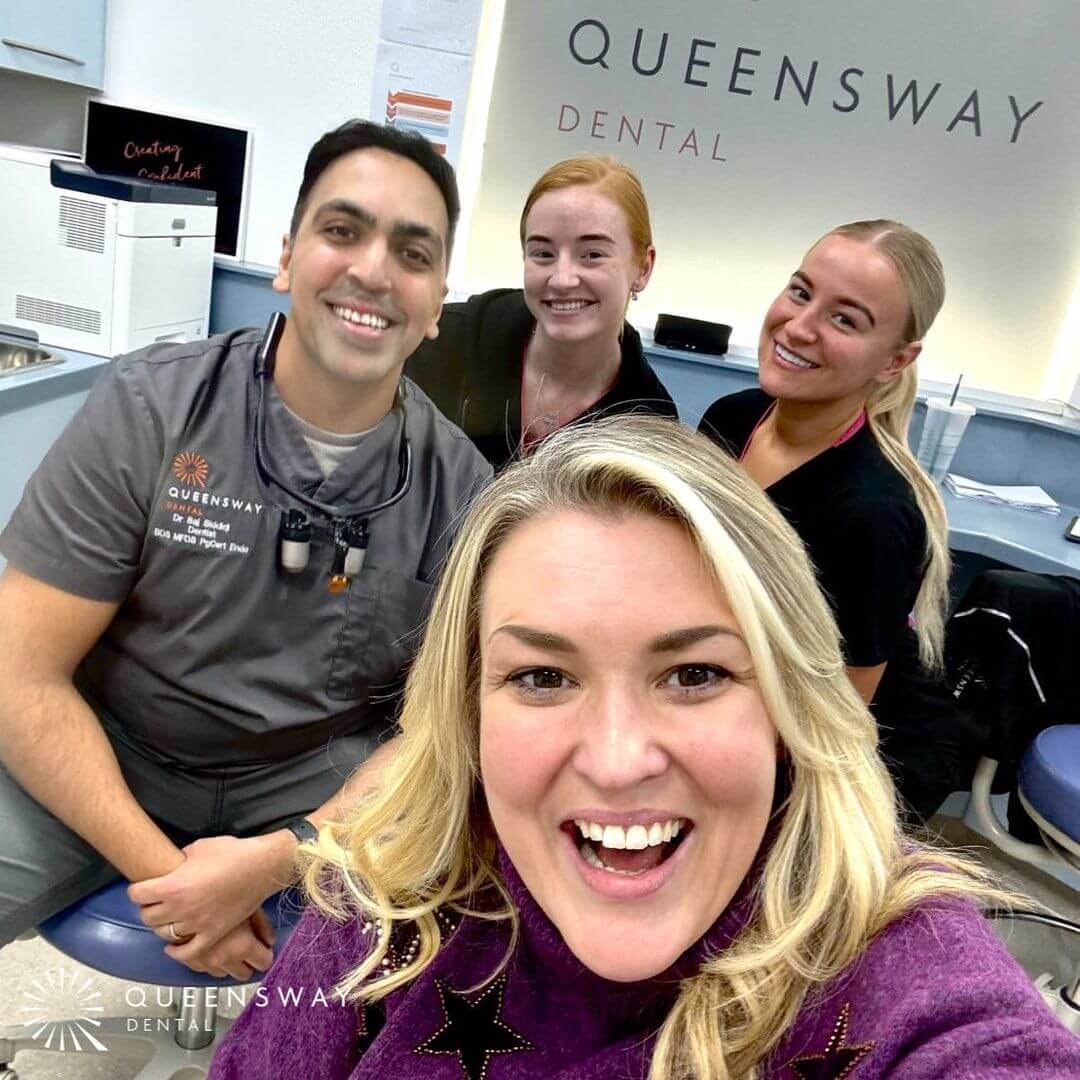Queensway Dental will closed from 24/12 at 1pm to 02/01 at 8am. On 29/12 and 30/12 (08.30-16.30) our phone lines will be open for emergencies only. On 31/12, we will be available for emergencies only from 08.30-13.00. If you are a Queensway patient with an emergency you may call 01642554667. We wish you and your families a very Merry Christmas and a Happy New Year!
Are Veneers Right For Me? Exploring Benefits, Types, and Your Options
Oct 30, 2025

Thinking about refreshing your smile but not sure where to start? Veneers can be a reliable way to change the colour, shape, and symmetry of your teeth with natural-looking results.
In this guide, you will learn what veneers are, the concerns they can solve, the different types available, and how to look after them. You will also see how we help you choose the right option for your goals at Queensway Dental.
What Are Veneers and What Can They Help With?
Veneers are thin, custom-made shells that bond to the front surface of your teeth. They are designed to improve the appearance of your smile while protecting as much healthy tooth as possible. Depending on the material and technique, veneers can be minimally invasive or require a small amount of enamel reduction.
Veneers can help if you have:
- Chips and fractures on front teeth
- Discolouration that does not respond fully to whitening
- Uneven edges, worn teeth, or small teeth that look out of proportion
- Gaps between teeth where orthodontics is not desired
- Peg-shaped or misshapen teeth
They can be used on a single tooth to blend with your smile or across several teeth as part of a wider smile makeover plan.
Types of Veneers and How They Differ
There is no one-size-fits-all option. The right veneer depends on your tooth health, desired outcome, timeline, and budget.
At Queensway, we offer a full range so you can compare like-for-like.
Porcelain veneers
Crafted from high-quality ceramic, porcelain veneers are known for lifelike translucency and long-term colour stability. They usually require some tooth preparation to create space for the veneer, helping achieve a seamless result and strong bond. Porcelain is ideal for comprehensive smile changes where durability and aesthetics are key.
Composite veneers
These are built directly on your teeth using tooth-coloured composite resin. We layer and shape the material by hand, then polish it to a high shine. Composite veneers can often be completed in one visit, are kinder to tooth structure, and are easier to adjust or repair. They are perfect for subtle reshaping, closing small gaps, and balancing edges.
No-prep veneers
For selected cases, ultra-thin veneers can be placed with no drilling of the natural tooth. This option usually needs no anaesthetic and can be faster. Case selection is crucial, so we assess your bite, enamel thickness, and desired shade to confirm suitability.
PMMA veneers
PMMA is an advanced, digitally designed veneer solution produced from your scans. It involves no tooth preparation and provides a neat, stain-resistant finish. PMMA veneers are useful where you want to preview changes, prefer a non-invasive path, or value the convenience of easy remakes if needed.
We will talk you through the advantages of each option at your consultation, including how they compare on longevity, maintenance, and cost.
Benefits and Limitations of Dental Veneers
Like any treatment, veneers have strengths and trade-offs. Understanding both will help you make a confident choice.
Benefits:
- Natural-looking results that blend with your teeth
- Customisable colour, shape, and symmetry
- Minimal or no drilling options in suitable cases
- Faster timelines compared with orthodontic alternatives
- Can be combined with other treatments for an even better result
Limitations:
- Some types may require enamel removal, which is not reversible
- Veneers can chip or wear and may need maintenance over time
- Underlying oral health must be stable before treatment
- Heavily stained or dark teeth might need careful masking
- Not a substitute for orthodontics in complex bite cases
Often, we recommend starting with professional whitening to set a brighter base, then matching your veneers to your refreshed shade. If you are considering brightening first, learn more about our tooth whitening service.
How to Care for Veneers and Make Them Last
Good habits will keep your veneers looking their best for years.
Daily care:
- Brush twice a day with a soft brush and fluoride toothpaste
- Clean between teeth daily with floss or interdental brushes
- Use non-abrasive products to protect the polished surface
Protective habits:
- Avoid using your teeth to open packets or bottles
- Do not bite fingernails, pen caps, or ice
- Cut hard foods into smaller pieces and chew with back teeth
- Wear a night splint if you grind your teeth
- Use a sports mouthguard for contact activities
Regular check-ups:
- Maintain routine dental and hygiene visits to check margins and polish surfaces
- Ask about Airflow stain removal if you notice surface staining from tea, coffee, or red wine
With sensible care, porcelain and zirconia veneers can last many years, while composite can be refreshed or repolished easily when needed.
Where Veneers Fit Within a Wider Smile Plan
Veneers often work best as part of a simple, well-sequenced plan. Common combinations include:
- Whitening first, then placing veneers matched to your brighter shade
- Minor gum reshaping for symmetry, then veneers for proportion
- Trialling shapes with composite, then moving to ceramic for long-term durability
If you prefer a non-invasive start or a same-day refresh, composite and PMMA veneers can be very effective. For high-end, long-lasting aesthetics, porcelain veneers are often recommended.
How Queensway Helps You Choose the Right Type
Choosing veneers is personal. At Queensway Dental, your journey starts with a relaxed, no-obligation consultation.
We listen to your goals, assess your oral health, and take digital scans and photographs. Where appropriate, we use digital smile design to preview options so you can see likely outcomes before you decide.
You will receive a clear explanation of:
- Which veneer types suit your teeth and bite
- How each option looks, feels, and wears over time
- Timelines, steps, and aftercare
- Transparent fees and finance choices
If you are unsure where to begin, explore our veneers page for an overview of materials and examples.
If you are considering brightening first, our tooth whitening service sets a great foundation. And if you want a quick, conservative way to refine shapes or repair chips, see how bonded composite can work in your plan.
Summary
Veneers can transform the look of your smile by addressing chips, discolouration, worn edges, gaps, and uneven shapes. You can choose from porcelain, composite, no-prep, and PMMA veneers, each with distinct benefits for aesthetics, durability, and invasiveness.
Good daily care, protective habits, and regular dental visits will help your veneers last.
At Queensway Dental, we guide you through every step with clear advice, digital planning, and a full range of veneer options so you can make an informed decision with confidence.
Ready to explore your choices?
Book a free consultation and let our experienced team help you design a smile you will love.


